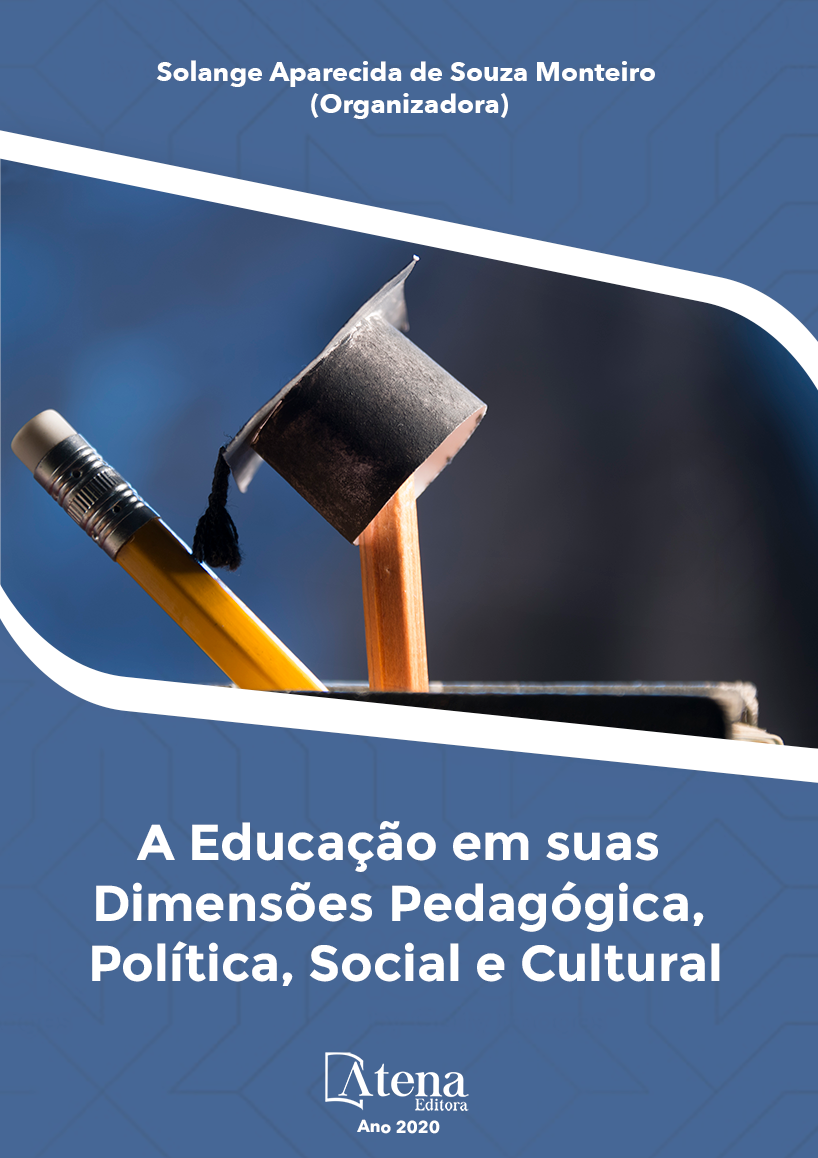
A PLURALIDADE CULTURAL ENSINADA NO CURRÍCULO DO ENSINO FUNDAMENTAL: UMA REFLEXÃO SOBRE A FORMAÇÃO DA CRIANÇA NO AMAZONAS
Cabe à escola contribuir com uma
formação cidadã ao trazer para o âmbito
do processo de ensino e aprendizagem as
questões históricas e culturais que fazem parte
da vida contemporânea. No Brasil, as Diretrizes
Curriculares Nacionais para a Educação Básica
(2013) determinam sobre a importância que
tem a viabilização efetiva no currículo de uma
formação comprometida com a valorização
das diferenças, respeito aos direitos humanos,
individuais e coletivos e suas manifestações na
pluralidade e na diversidade cultural existente
no país. Mas, como se sabe, este é um dos
maiores desafios formativos a ser assumido e
garantido pela escola do presente, posto que
o Brasil é um país que se caracteriza pela
pluralidade de culturas, não sendo fácil instituir
na escola uma formação para uma convivência
sem preconceitos e discriminações, e ainda,
resguardando-se os direitos sociais duramente
conquistados em meio a tanta diversidade. Esta
pesquisa teve como objetivo principal, refletir
sobre o tema acima mencionado, discutindose aspectos de sua integração e inclusão n
currículo escolar em ação diariamente, bem
como refletir sobre a relevância desta inclusão
para a formação da identidade regional do préadolescente do Ensino Fundamental, anos
finais, a partir do 6º ano de estudo. Os principais
procedimentos utilizados para a coleta de
dados foram observação direta e consulta
documental. A análise e interpretação dos
dados se apoiaram nos princípios do método
de interpretação de sentidos na perspectiva
da corrente fenomenológica. Os resultados
evidenciam inúmeras contradições e desafios
envolvendo assimilação de teorias e realização
de práticas e desafios a respeito do tema
Pluralidade Cultural. Aprender sobre a cultura
em que vive, é fundamental para a formação
do cidadão como sujeito individual e coletivo,
ensinar sobre a pluralidade de culturas que se misturam no território brasileiro, e no
contexto regional deve fazer parte cotidiana do currículo escolar.
A PLURALIDADE CULTURAL ENSINADA NO CURRÍCULO DO ENSINO FUNDAMENTAL: UMA REFLEXÃO SOBRE A FORMAÇÃO DA CRIANÇA NO AMAZONAS
-
DOI: 10.22533/at.ed.27620130213
-
Palavras-chave: Currículo Escolar. Pluralidade Cultural. Ensino Fundamental.
-
Keywords: School Curriculum. Cultural Plurality. Basic Education. Elementary School
-
Abstract:
It is the school’s responsability to contribute to citizen formation and to
focus on the teaching and learning process related to historical and cultural issues,
which are part of contemporary life. In Brazil, the National Curriculum Guidelines for
Basic Education (2013) determine the importance of effective and viable curriculum
for a commited education, that appreciates differences, respects human, individual
and collective rights and their plural manifestations in the cultural diversity. But, as
it’s known, this is one of the biggest formative challenges in the current school, since
Brazil is a country that is characterized by the plurality of cultures, and it is not easy
to institute a formation for coexistence without prejudice and discrimination, as well as
safeguarding the hard-won social rights in the midst of such diversity. This research had
as its main purpose to reflect on the plurality theme, discussing aspects of its integration
and inclusion in the school curriculum on a daily basis aplication, as well as to reflect
on the relevance of this inclusion to regional identity formation of the pre-adolescent
elementary school, final years, and from the 6th year of study. The main procedures
used for data collection were direct observation and documentary consultation. The
analysis and interpretation were based on the principles of sense interpretation method
from the phenomenological perspective. The results show numerous contradictions
and challenges involving assimilation of theories and realization of practices and
challenges regarding the theme Cultural Plurality. Learning about the culture in which
they live is fundamental for the formation of the citizen as an individual and collective
subject, teaching about the plurality of cultures that mix in the Brazilian territory, and in
the regional context should be part of the daily school curriculum.
-
Número de páginas: 15
- Bernardina Barbosa da Silva Martins
- Maria de Jesus Campos de Souza Belém


